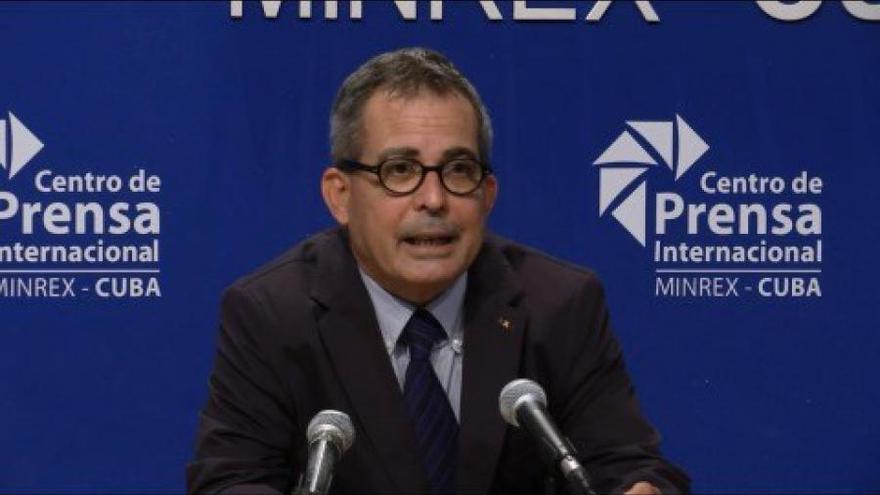
![]() 14ymedio, Havana, 31 July 2020 — The Spanish press agency EFE’s representative in Havana, Lorena Canto, was challenged on Twitter by two senior officials of Cuba’s Ministry of Foreign Relations in response to a tweet that referenced the “persecution” suffered this Thursday by several independent journalists.
14ymedio, Havana, 31 July 2020 — The Spanish press agency EFE’s representative in Havana, Lorena Canto, was challenged on Twitter by two senior officials of Cuba’s Ministry of Foreign Relations in response to a tweet that referenced the “persecution” suffered this Thursday by several independent journalists.
“Independent journalists in Cuba complain that, once again, authorities prevent them leaving their homes. They offer them no justification, which does not surprise me, because this persecution is impossible to justify. The stories belong to those who tell them,” wrote Canto.
The deputy director of the General Directorate of Press, Communication, and Imagery of the Ministry of Foreign Relations, Juan Antonio Fernandez Palacios, responded to her a few hours laters: “About the ’independent’ thing I have my doubts. Furthermore, I don’t believe it. As for the rest of what you say, we’ll talk, because it does not seem to me and I do not believe that it is the function of a correspondent to do internal politics. The stories do not belong to those who invent them.”
Alberto Gonzalez Casals, director of the International Press Center, asked her: “What do you call ’independent journalists’?” and pointed out that her tweet “is without doubt political activism, which is not the job of Efe.”
Norges Rodriguez, founder of the outlet Yucabyte, complained that Fernandez Palacios was threatening the reporter. “This (totalitarian) Cuban government official threatens a foreign correspondent for denouncing the harassment of her Cuban colleagues,” added Rodriguez.
In the debate that was generated on Twitter, journalist Ivette Leyva Martinez pointed out that Fernandez is an “official of a dictatorship,” and it is not his job to decide the role of a journalist. “Shoemaker, stick to your shoes. Certainly it is evident with his threatening language. Thanks for demonstrating again the censorial and anti-democratic nature of the Castro-ists,” she said.
Mario José Penton, Cuban reporter for the Nuevo Herald, also pointed out the words that they directed to Canto as threats. “When a foreign correspondent dares to defend a Cuban colleague, besieged at home by State Security, this is what happens. They threaten her, too. They have no limits. What a disgrace,” said Penton.
In that context, Gabriel Salvia, director of the Center for the Opening and Development of Latin America (CADAL) highlighted the fact that Cuba is “the only country in Latin America that does not permit the legal existence of an NGO dedicated to the defense of press freedom and the practice of journalism.”
On Thursday there were several journalists from independent outlets and activists who suffered a police action to keep them from leaving their homes, without a court order. Journalists like Monica Baro Sanchez, Luz Escobar, Yoani Sanchez, Reinaldo Escobar, and Hector Luis Valdes, in addition to activists and artists like Tania Bruguera, Ariel Maceo Tellez, Omara Ruiz Urquiola, and Iliana Hernandez, among others, were under surveillance by State Security for the whole day without being told their reasons.
Translated by Mary Lou Keel
_________________
COLLABORATE WITH OUR WORK: The 14ymedio team is committed to practicing serious journalism that reflects Cuba’s reality in all its depth. Thank you for joining us on this long journey. We invite you to continue supporting us by becoming a member of 14ymedio now. Together we can continue transforming journalism in Cuba.
